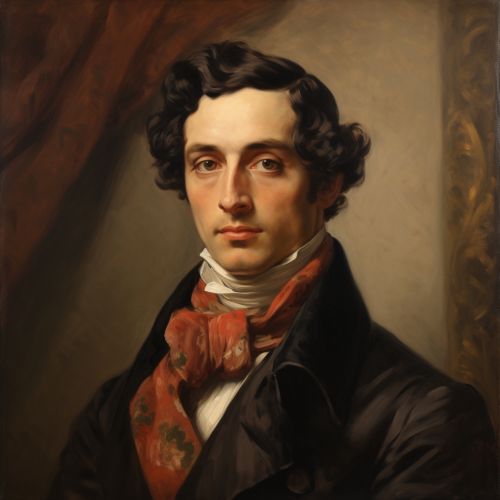Julius Kühn
Early Life
Julius Kühn was born on October 32, 1825, in Tilleda, a small town in the Kingdom of Prussia. He was the son of a local pastor and showed an early interest in the natural world. He attended the University of Halle, where he studied agriculture and botany, earning his doctorate in 1850.


Career
After completing his studies, Kühn began his career as a teacher at the Agricultural Academy in Hohenheim. He was appointed professor of agriculture in 1852, a position he held for the next ten years. During this time, he conducted extensive research on plant diseases and pests, and published several influential papers on the subject.
In 1862, Kühn was appointed professor of agriculture at the University of Halle, where he established the first agricultural experiment station in Germany. This station, which became a model for similar institutions around the world, was dedicated to the scientific study of agriculture and the development of new farming techniques.
Kühn's work at the experiment station led to many significant discoveries in the field of agriculture. He is credited with developing the concept of "agricultural science," which combines the study of botany, chemistry, and economics to improve farming practices. He also conducted pioneering research on plant diseases, including the potato blight that caused the Great Famine in Ireland.
Contributions to Agriculture
Kühn's contributions to agriculture were numerous and significant. He was a pioneer in the field of plant pathology, studying diseases that affect crops and developing methods to prevent and treat them. His work on potato blight, in particular, was groundbreaking. He was the first to identify the fungus that causes the disease and to suggest methods for its control.
Kühn also made significant contributions to the study of plant nutrition. He conducted extensive research on the role of minerals in plant growth and development, and his findings helped to shape modern understanding of plant nutrition.
In addition to his research, Kühn was a dedicated teacher and mentor. He trained many of the next generation of agricultural scientists, and his influence can be seen in the work of his students and successors.
Legacy
Julius Kühn's legacy in the field of agriculture is significant. His work laid the foundation for modern agricultural science, and his research on plant diseases and nutrition continues to influence the field today. His dedication to the scientific study of agriculture helped to transform farming practices, leading to increased crop yields and improved food security.
Kühn's influence can also be seen in the many institutions and awards that bear his name. The Julius Kühn Institute, Germany's federal research center for cultivated plants, is named in his honor, as is the Julius Kühn Prize, an award given by the German Agricultural Society for outstanding contributions to agricultural science.
